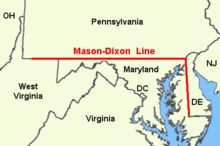“Punting the Pundits” is an Open Thread. It is a selection of editorials and opinions from around the news medium and the internet blogs. The intent is to provide a forum for your reactions and opinions, not just to the opinions presented, but to what ever you find important.
Thanks to ek hornbeck, click on the link and you can access all the past “Punting the Pundits”.
Follow us on Twitter @StarsHollowGzt
New York Times Editorial Board: Cuba’s Impressive Role on Ebola
Cuba is an impoverished island that remains largely cut off from the world and lies about 4,500 miles from the West African nations where Ebola is spreading at an alarming rate. Yet, having pledged to deploy hundreds of medical professionals to the front lines of the pandemic, Cuba stands to play the most robust role among the nations seeking to contain the virus.
Cuba’s contribution is doubtlessly meant at least in part to bolster its beleaguered international standing. Nonetheless, it should be lauded and emulated. [..]
It is a shame that Washington, the chief donor in the fight against Ebola, is diplomatically estranged from Havana, the boldest contributor. In this case the schism has life-or-death consequences, because American and Cuban officials are not equipped to coordinate global efforts at a high level. This should serve as an urgent reminder to the Obama administration that the benefits of moving swiftly to restore diplomatic relations with Cuba far outweigh the drawbacks.
Paul Krugman: Amazon’s Monopsony Is Not O.K.
Amazon.com, the giant online retailer, has too much power, and it uses that power in ways that hurt America.
O.K., I know that was kind of abrupt. But I wanted to get the central point out there right away, because discussions of Amazon tend, all too often, to get lost in side issues.
For example, critics of the company sometimes portray it as a monster about to take over the whole economy. Such claims are over the top – Amazon doesn’t dominate overall online sales, let alone retailing as a whole, and probably never will. But so what? Amazon is still playing a troubling role.
Meanwhile, Amazon’s defenders often digress into paeans to online bookselling, which has indeed been a good thing for many Americans, or testimonials to Amazon customer service – and in case you’re wondering, yes, I have Amazon Prime and use it a lot. But again, so what? The desirability of new technology, or even Amazon’s effective use of that technology, is not the issue. After all, John D. Rockefeller and his associates were pretty good at the oil business, too – but Standard Oil nonetheless had too much power, and public action to curb that power was essential.
And the same is true of Amazon today.
Bill Gates’ critique of Thomas Piketty is revealing for what it overlooks
A review of French economist Thomas Piketty’s best-selling book “Capital in the 21st Century” by the world’s richest man is too delicious to ignore. The main takeaway from Piketty’s book, of course, is that we need to worry about the growing concentration of capital, in which people like Microsoft co-founder turned megaphilanthropist Bill Gates and his children will control the bulk of society’s wealth. Gates, however, doesn’t quite see it this way.
From his evidence, he actually has a good case. If the issue is the superrich passing their wealth to their children, who will become the next generation’s superrich, he is right to point out that the biographies of the Forbes 400 – the richest 400 Americans – don’t seem to support this concern. We find many people like Gates, who started life as the merely wealthy (his father was a prosperous corporate lawyer), who parlayed their advantages in life into enormous fortunes. The ones who inherited their vast wealth are the exception, not the rule. [..]
While philanthropy may prevent the direct inheritance of most multibillion-dollar fortunes, the charitable giving of billionaires is unlikely to go to efforts that could undermine the basis of their wealth or their peers’. We may not need to fear that the next generations’ Forbes 400 will all be descendants of this generation’s billionaires, but we do have to fear that the rules will continue to be rigged so that this group and its lackeys in the 1 percent continue to control the bulk of the country’s wealth. That is not a pretty picture, even if it is not the nightmare Piketty warns of.
Will Hutton: Ebola and failing markets tell us that we need to work together
Governments must heed the warnings of our brightest minds and reshape our societies to help those most in need
Last week, the world’s stock and bond markets swung wildly. They worried about the threat of world deflation, falling oil prices and further systemic weaknesses in the financial system. But perhaps they were most concerned about whether spooked governments had the will to do anything, even if those governments could agree on what that should be. If they can’t manage a co-ordinated response to Ebola or one against the cruelties of Isis, then it is hardly likely they are going to find common ground in managing the fissures in the world economy. [..]
Thus only last week, Janet Yellen, chair of the US Federal Reserve, joined one of her predecessors, Alan Greenspan, and the governor of the Bank of England, Mark Carney, in arguing that the growth of inequality was not only wrong morally but having increasingly baleful economic consequences. Then there were the strictures of the managing director of the IMF, Christine Lagarde.
Inequality, they all say, fosters fear, creates too much demand for credit to compensate for squeezed living standards, drives asset price bubbles, catalyses financial instability, weakens banks and, by displacing too much risk on to those who cannot bear it, undermines the legitimacy of capitalism. You have to blink with incredulity – and then blink again at markets falling because they want to see purposeful government action.Thus only last week, Janet Yellen, chair of the US Federal Reserve, joined one of her predecessors, Alan Greenspan, and the governor of the Bank of England, Mark Carney, in arguing that the growth of inequality was not only wrong morally but having increasingly baleful economic consequences. Then there were the strictures of the managing director of the IMF, Christine Lagarde.
Inequality, they all say, fosters fear, creates too much demand for credit to compensate for squeezed living standards, drives asset price bubbles, catalyses financial instability, weakens banks and, by displacing too much risk on to those who cannot bear it, undermines the legitimacy of capitalism. You have to blink with incredulity – and then blink again at markets falling because they want to see purposeful government action.
Rpbert Kuttner: A Revolt Against Austerity?
There was a bit of good news from Europe last week. Two of the nations that desperately need some respite from austerity essentially told German Chancellor Merkel to stuff it.
France, under pressure from Germany and the European Union to meet the E.U.’s straightjacket requirement of deficits of no more than three percent of GDP (whether or not depression looms) informed the E.U. that they will not hit this target until 2017. The government of President Francois Hollande, under fire for failing to ignite a recovery, now plans economic stimulus measures — and the target be damned. Under E.U. rules, France can be fined up to 0.2 percent of its GDP. The French seem to be saying, “So sue us!”
Italy, under Prime Minister Matteo Renzi, has followed suit, with a budget that plans cuts in labor taxes. Meanwhile, the European Central Bank is in open rebellion against the German austerity-mongers. The ECB would like to pursue a policy more like that of the Federal Reserve, giving direct support to government bonds to keep interest rates low. But the Merkel government remains adamantly opposed. Even the International Monetary Fund, traditionally the citadel of fiscal orthodoxy, has warned that Europe’s recovery policy is too tight, not too loose.
John Nichols: One Thing Hillary Clinton Understands About Politics in 2014
Hillary Clinton is never going to be confused for an economic populist. Her record as a key player in Bill Clinton’s administration, as a United States senator, as secretary of state and as a favorite on the corporate speaking circuit in recent years bends a lot more toward Wall Street than Main Street.
But Hillary Clinton understands something important-make that vital-about the politics of 2014.
Clinton recognizes that the issue that matters in 2014 is the economy (number one in the latest Gallup Poll) and that voters want “good jobs” that pay a family-supporting wage (number two in the latest Gallup survey). And Clinton knows that the clearest policy connection between where the economy is today and where it needs to be is made via support for a substantial hike in the minimum wage.
So when the presumed Democratic front-runner in 2016 swept into Kentucky this week to muscle up the US Senate campaign of Clinton-family favorite Alison Lundergan Grimes, Clinton was on message-far more on message, in fact, than most prominent Democrats who have hit the trail this month in an effort to save the Senate, win governorships and generally prevent the 2014 midterms from going the way of the 2010 midterms.



 Welcome to the Stars Hollow Gazette‘s
Welcome to the Stars Hollow Gazette‘s 
 Charles Mason and Jeremiah Dixon complete their survey of the boundary between the colonies of Pennsylvania and Maryland as well as areas that would eventually become the states of Delaware and West Virginia. The Penn and Calvert families had hired Mason and Dixon, English surveyors, to settle their dispute over the boundary between their two proprietary colonies, Pennsylvania and Maryland.
Charles Mason and Jeremiah Dixon complete their survey of the boundary between the colonies of Pennsylvania and Maryland as well as areas that would eventually become the states of Delaware and West Virginia. The Penn and Calvert families had hired Mason and Dixon, English surveyors, to settle their dispute over the boundary between their two proprietary colonies, Pennsylvania and Maryland.
Recent Comments